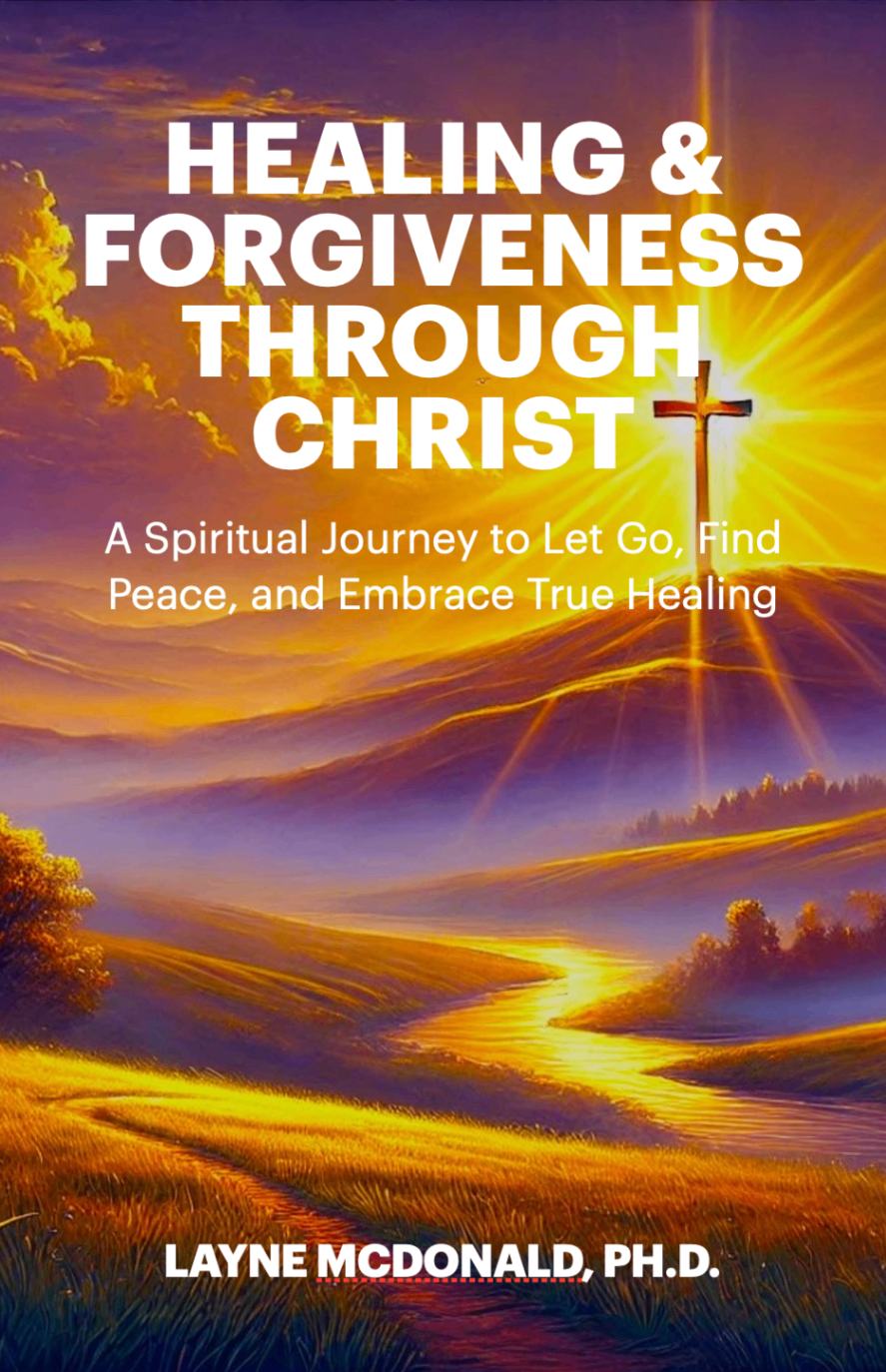The Proven Christian Forgiveness Framework: 5 Steps to Heal and Move Forward
- Layne McDonald
- Oct 31, 2025
- 5 min read
Forgiveness might be one of the most challenging yet transformative acts we're called to embrace as Christians. When someone deeply hurts us, our natural response is to hold onto that pain, replay the offense, and sometimes even plot revenge. But God calls us to something radically different: something that sets us free and reflects His heart.
As Layne McDonald often teaches in his ministry work, true Christian forgiveness isn't just about saying "I forgive you" and moving on. It's a deliberate process that involves both our will and our heart, guided by the Holy Spirit's transformative power. Today, we're diving into a proven 5-step framework that has helped countless believers experience the healing and freedom that forgiveness brings.
Understanding What Forgiveness Really Means
Before we explore the steps, let's get clear on what biblical forgiveness actually is. To forgive, in Christian terms, means "to let go." When you choose to forgive someone, you're releasing your right to get even and allowing God to take control of the situation. This doesn't mean you're excusing their behavior or pretending the hurt didn't happen: it means you're choosing to respond God's way instead of the world's way.
Here's something crucial: forgiveness and reconciliation are different. You can forgive someone without fully reconciling with them. Forgiveness is your choice and doesn't require the other person to apologize or even acknowledge their wrongdoing. Reconciliation, however, requires both parties and often involves rebuilt trust over time.

Step 1: Acknowledge and Journal the Hurt
The first step in any genuine forgiveness process is honest acknowledgment. You can't heal what you won't feel, and you can't forgive what you won't face. This step requires courage because it means sitting with your pain instead of stuffing it down or pretending it doesn't matter.
Take time to journal about your experience:
Write about your relationship with this person
Detail exactly what they did to hurt you
Describe why their actions were so painful
Reflect on what their behavior revealed about their character
Consider whether a continued relationship would be safe and healthy
This isn't about wallowing in victimhood: it's about processing your emotions in a healthy way. God isn't afraid of your pain or anger. He can handle your honest feelings, and He wants to meet you in that place of vulnerability.

Step 2: Reflect on Your Own Need for Forgiveness
This step requires careful discernment and shouldn't be applied in abusive situations. In healthy relationships where there may have been mutual fault or misunderstanding, take time to examine your own heart and actions. More importantly, focus on the massive forgiveness God has extended to you.
When we truly grasp the depth of our own sin and God's incredible mercy toward us, it becomes easier to extend that same mercy to others. As Layne McDonald emphasizes in his teachings, we are all broken people in need of grace. The ground is level at the foot of the cross.
Ask yourself:
How has God forgiven me when I didn't deserve it?
What would my life look like if God held my sins against me?
How can I extend the same grace I've received?
Step 3: See Them Through the Cross
This is where the supernatural element of Christian forgiveness comes into play. Instead of seeing your offender through the lens of your pain, try to see them through the lens of Christ's redemption. This doesn't minimize what they did: it recognizes that they, like you, are someone Jesus died for.
All forgiveness is substitutionary in nature. Just as Christ paid the price for your sins, when you forgive someone, you're choosing to absorb the cost of their sin against you without seeking revenge. You're saying, "I won't make you pay for what you did to me. I'm releasing you from that debt."
This perspective shift is supernatural and can only happen through the Holy Spirit's power. It's not something you can manufacture through willpower alone.

Step 4: Guard Your Mouth and Realign Your Thoughts
When we're hurt, our natural tendency is to replay the offense over and over, telling everyone who will listen about what "they" did to us. This step requires intentional discipline in both our thought life and our speech patterns.
Choose to:
Stop rehearsing the offense in your mind
Refuse to gossip about the situation
Redirect your mental energy toward what God wants to do in and through you
Focus on your own spiritual growth rather than what the other person deserves
This doesn't mean you can't process your feelings with trusted counselors or friends: it means you stop using your pain as ammunition to destroy someone's reputation or fuel your own bitterness.
Step 5: Walk in Freedom and Bear Fruit
The final step is maintaining your forgiveness over time and allowing it to bear fruit in your life. Genuine forgiveness is demonstrated through changed behavior and attitude. This means:
You can pray genuinely for the person who hurt you
You're not constantly bringing up past offenses
You've stopped gossiping about what happened
You feel compassion rather than rage when you think of them
You're able to wish them well, even from a distance
This step often takes the longest because it's about heart transformation, not just behavioral change. Some days you'll feel the forgiveness strongly, other days the old anger might resurface. That's normal: forgiveness is often a process, not a one-time event.

When Forgiveness Feels Impossible
There will be times when forgiveness feels absolutely impossible. The hurt is too deep, the betrayal too devastating, the injustice too overwhelming. In these moments, remember that forgiveness isn't about your strength: it's about God's grace working through you.
Start with a prayer as simple as: "God, I can't forgive this person right now, but I'm willing to be willing. Would You change my heart?" Sometimes we have to ask God to help us want to forgive before we can actually do it.
Also remember that forgiveness doesn't mean:
Pretending the offense didn't happen
Trusting someone who hasn't proven trustworthy
Putting yourself back in harm's way
Excusing or minimizing sinful behavior
The Freedom That Forgiveness Brings
When you walk through this forgiveness framework, something beautiful happens. The chains that bound you to your offender through bitterness and anger are broken. You discover that forgiveness wasn't primarily a gift you gave them: it was a gift you gave yourself.
As Layne McDonald teaches, when you hold onto unforgiveness, you give your offender continued power over your present and future. But when you forgive, you take back that power and place it in God's capable hands. You experience the peace, joy, and freedom that come from walking in obedience to Christ's command to forgive.
This framework isn't just theory: it's a proven path that countless believers have walked to find healing and freedom. It requires courage, faith, and reliance on the Holy Spirit, but the destination is worth every difficult step.
Ready to experience the transformative power of biblical forgiveness in your own life? Visit www.laynemcdonald.com to explore Layne McDonald's complete collection of healing and forgiveness resources, including his book "Healing & Forgiveness Through Christ," coaching videos that walk you through each step of the process, and podcasts featuring real stories of redemption and restoration. Start your journey toward freedom today: because you deserve to live unshackled by the past. #laynemcdonald

$50
Product Title
Product Details goes here with the simple product description and more information can be seen by clicking the see more button. Product Details goes here with the simple product description and more information can be seen by clicking the see more button

$50
Product Title
Product Details goes here with the simple product description and more information can be seen by clicking the see more button. Product Details goes here with the simple product description and more information can be seen by clicking the see more button.

$50
Product Title
Product Details goes here with the simple product description and more information can be seen by clicking the see more button. Product Details goes here with the simple product description and more information can be seen by clicking the see more button.
Comments